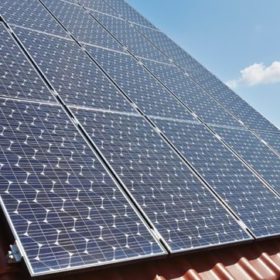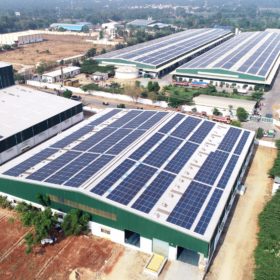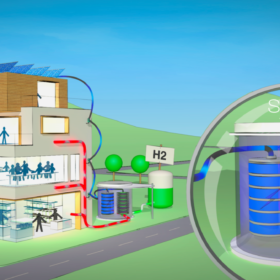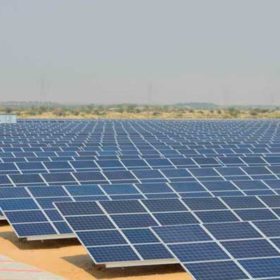European carrier plans hydrogen buses for long-distance routes
German coach company planning start-up Flixbus will test hydrogen fuel cell vehicles on long-distance routes.
Gujarat seeks to empanel rooftop solar installers for government buildings
November 28 is the last date for EPC installers to submit the rates for different capacities of grid-connected rooftop solar systems on government buildings.
New material for radiative cooling of solar panels
Spanish researchers have discovered a material said to offer radiative cooling and self-cleaning of devices which undergo critical heating during operation, such as PV panels. The thermal emitter enabled the scientists to lower the daytime temperature of silicon wafers by 14 degrees Celsius.
Tata Power to develop 50 MW in Gujarat’s Dholera Solar Park
With this award, the company’s solar capacity under implementation in the state has now swelled to 400 MW, including another 250 MW in Dholera Solar Park and 100 MW in Raghanesda Solar Park.
Uttarakhand tenders 10 MW grid-connected rooftop solar
November 29 is the last date to bid for projects that are to be set up in sizes of 1 KWp to 500 KWp across the state. The entire project cost is estimated at Rs 500 million.
Coal India tenders 100 MW solar projects in Chattisgarh
The projects—to be developed in ‘Capex’ mode—are part of the coal producer’s planned solar capacity of around 3 GW to emerge as a net zero energy company. Bidding closes on November 25.
Distributed storage market to grow nearly twentyfold by 2028
Market intelligence company Navigant Research has developed a country forecast of the global market. Incentives and pricing will be the main driver of installations, though the market will continue to be concentrated in certain key regions, including India, for now.
E-waste company opens battery recycling plants in Singapore and France
TES issued a press release announcing the new facilities that is light on detail but claimed the plants would position it as ‘a leader’ in battery recycling. The company also announced an intent to move into the reuse of spent electric vehicle batteries in commercial and residential applications.
French consortium develops hybrid storage and co-generation system
The Smart Energy Hub can operate in electrolysis mode to store renewable energy as hydrogen, or in fuel cell mode to produce electricity and heat from previously produced hydrogen or methane. Its developers are the French Alternative Energies and Atomic Energy Commission and start-up Sylfen.
Haryana retenders 57 MW grid-connected solar capacity
Haryana Power Generation Corporation Limited has retendered ground-mounted solar capacity of 57 MW with relaxation in eligibility criteria. The projects—to be set up on build, operate and transfer basis—shall come up at three sites in the state and will be awarded through international competitive bidding. Bidding closes on November 25.















